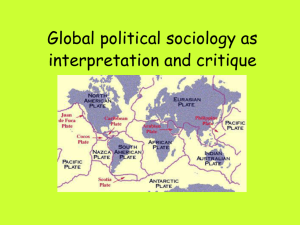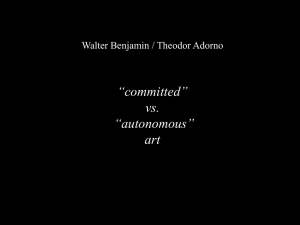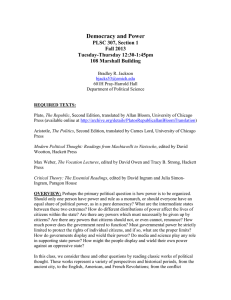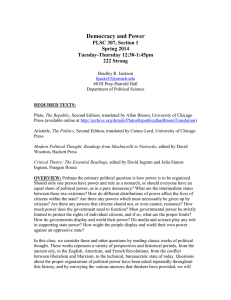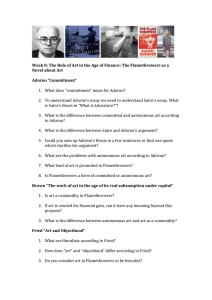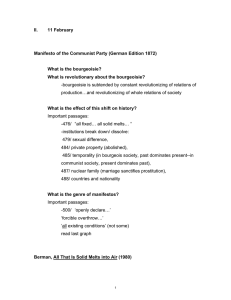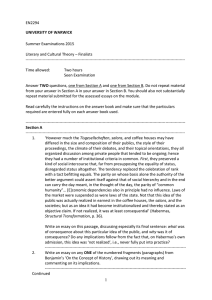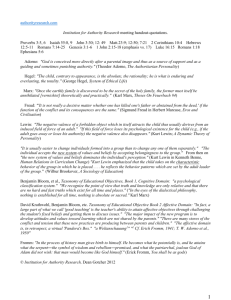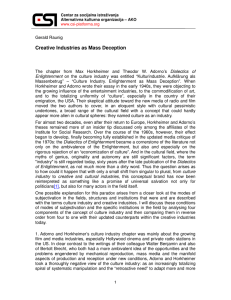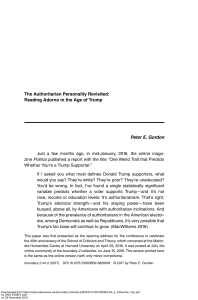EN2293 Summer Examinations 2015 Literary and Cultural Theory – Non-Finalists
advertisement
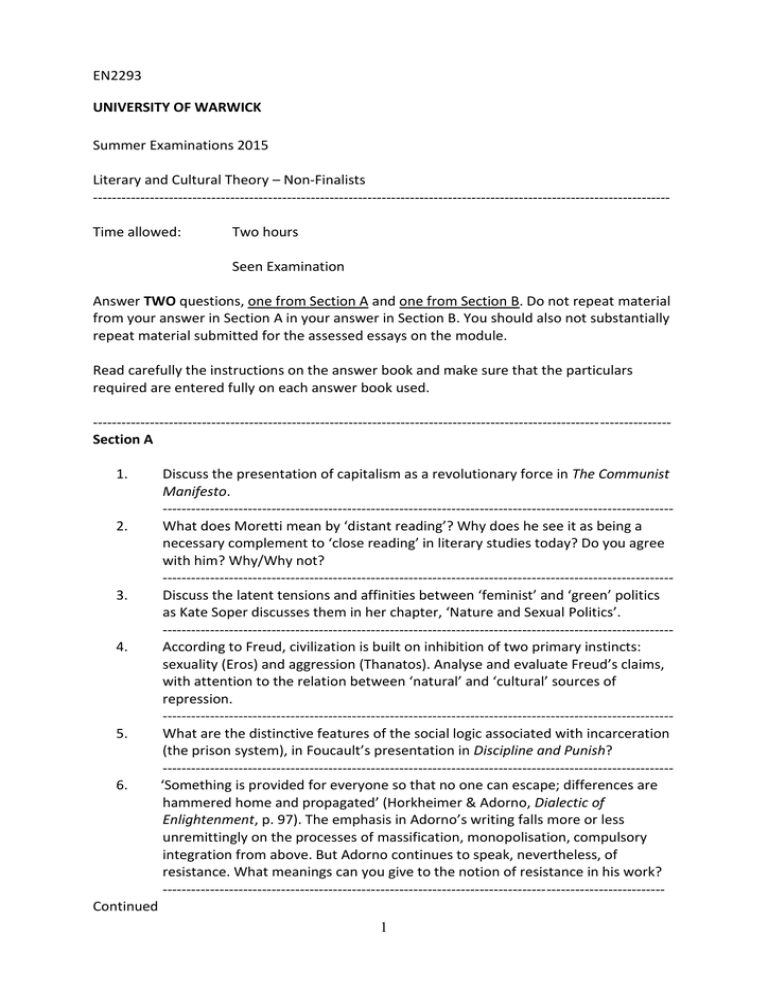
EN2293 UNIVERSITY OF WARWICK Summer Examinations 2015 Literary and Cultural Theory – Non-Finalists -------------------------------------------------------------------------------------------------------------------------Time allowed: Two hours Seen Examination Answer TWO questions, one from Section A and one from Section B. Do not repeat material from your answer in Section A in your answer in Section B. You should also not substantially repeat material submitted for the assessed essays on the module. Read carefully the instructions on the answer book and make sure that the particulars required are entered fully on each answer book used. -------------------------------------------------------------------------------------------------------------------------Section A 1. 2. 3. 4. 5. 6. Discuss the presentation of capitalism as a revolutionary force in The Communist Manifesto. -----------------------------------------------------------------------------------------------------------What does Moretti mean by ‘distant reading’? Why does he see it as being a necessary complement to ‘close reading’ in literary studies today? Do you agree with him? Why/Why not? -----------------------------------------------------------------------------------------------------------Discuss the latent tensions and affinities between ‘feminist’ and ‘green’ politics as Kate Soper discusses them in her chapter, ‘Nature and Sexual Politics’. -----------------------------------------------------------------------------------------------------------According to Freud, civilization is built on inhibition of two primary instincts: sexuality (Eros) and aggression (Thanatos). Analyse and evaluate Freud’s claims, with attention to the relation between ‘natural’ and ‘cultural’ sources of repression. -----------------------------------------------------------------------------------------------------------What are the distinctive features of the social logic associated with incarceration (the prison system), in Foucault’s presentation in Discipline and Punish? -----------------------------------------------------------------------------------------------------------‘Something is provided for everyone so that no one can escape; differences are hammered home and propagated’ (Horkheimer & Adorno, Dialectic of Enlightenment, p. 97). The emphasis in Adorno’s writing falls more or less unremittingly on the processes of massification, monopolisation, compulsory integration from above. But Adorno continues to speak, nevertheless, of resistance. What meanings can you give to the notion of resistance in his work? ---------------------------------------------------------------------------------------------------------- Continued 1 EN2293 Section B -------------------------------------------------------------------------------------------------------------------------7. 8. 9. 10. 11. 12. ‘Violence, above all environmental violence, needs to be seen – and deeply considered – as a contest not only over space, or bodies, or labor, or resources, but also over time’ (Nixon, Slow Violence). ‘The only historian capable of fanning the spark of hope in the past is the one who is firmly convinced that even the dead will not be safe from the enemy if he is victorious’ (Benjamin, ‘On the Concept of History’). Discuss Nixon’s presentation of time and slow violence in light of Benjamin’s concept of history. -----------------------------------------------------------------------------------------------------------Analyse and evaluate the significance of the concept of ‘world-system’ as it appears in the arguments of any two theorists you have read this year. -----------------------------------------------------------------------------------------------------------‘Autobiography practised in the enemy’s language has the texture of fiction’ (Djebar, Fantasia, pp. 216-17). Discuss the politics of language and writing in the work of Djebar and Cixous. -----------------------------------------------------------------------------------------------------------‘I propose that we move from the “environmental history of” modernity, to capitalism “as environmental history”’ (Moore, ‘Ecology, Capital, and the Nature of Our Times’). Discuss, with reference to Moore and any two other theorists you have examined this year. -----------------------------------------------------------------------------------------------------------In what ways does the development of media technology reshape the politics of culture? Discuss, with reference to at least two of the theorists whose work you have read this year. -----------------------------------------------------------------------------------------------------------To what extent can Adorno and Baudrillard be seen to be drawing, in their work, on Lukács’s theory of reification? -----------------------------------------------------------------------------------------------------------End 2
